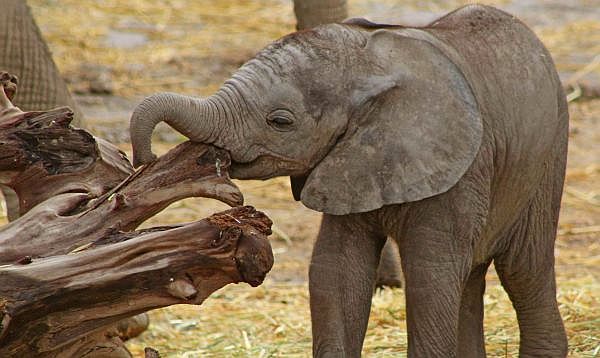Puebla, Mexico - Last week, Africam Safari, a Wildlife Conservation Park in Puebla, introduced the first African elephant to be born in their menagerie. Africam Safari houses 5000 animals of almost 450 species from every continent in the world and is the largest elephant habitat in Latin America.
Five years ago, the park managed to rescue 9 African elephants from Namibia, Africa, thus saving their lives and giving them a new home. Since then they have received the highest quality veterinary care to keep the herd in optimum conditions, which led to the inevitable reproduction of the species.
According to the park's director, the male calf was born on May 16, 2017, and currently stands 80 centimeters high and weighs a healthy 110 kilograms.
 |
"The efforts we've made to give the elephants the best care and to encourage reproduction have been titanic, but a titanic species that's about to disappear deserves titanic efforts," he added.
The yet to be named calf is very important to Carlos and his team because the African elephant is one of the most threatened animal species in the world. "Some 33,000 elephants are hunted and killed every year by poachers. Since the turn of the 20th century, less than 8% of African elephants living in the wild have survived," he stressed.
"This young male will be part of a worldwide recovery program through which elephants born in the park will be seen - in the future - back in Africa, in protected sites," he said. Meanwhile, a team of experts is monitoring the calf's development 24/7 and the whole herd is being very protective of its newest member, who is being nurtured by its mother and another cow.
From the day it opened its doors to the public, on April 2, 1972, Africam Safari has developed into a true Conservation Center that also offers Environmental Education, Research and Recreation programs. With the mission of generating significant emotions that inspire present and future generations to love and respect the planet, today it is Puebla's biggest tourist attractions and a leader of conservation efforts in Latin America.


